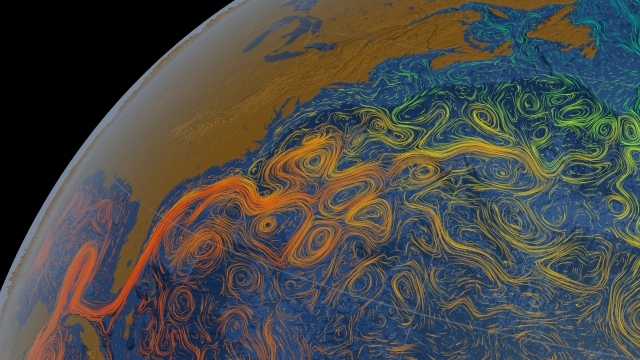Trouble is brewing in the North Atlantic.
'We don't really consider it low probability anymore':
Collapse of key Atlantic current could have catastrophic impacts, says oceanographer Stefan Rahmstorf
The Atlantic Ocean's most vital ocean current is showing troubling signs of reaching a disastrous tipping point.
Oceanographer Stefan Rahmstorf tells Live Science what the impacts could be.
Beneath the waves, the Atlantic Meridional Overturning Circulation ( #AMOC ),
which includes the Gulf Stream,
acts as a planetary conveyor belt bringing nutrients, oxygen and heat north from tropical waters,
while moving colder water south
— a balancing act that keeps the Northern Hemisphere warm.
But research into Earth's climate history shows that the current has switched off in the past,
and a growing number of studies suggest that climate change is causing the AMOC to slow, possibly leading it toward a disastrous collapse.
On Monday (Oct. 21), 44 oceanographers from 15 countries published an open letter calling for urgent action in the face of the weakening circulation.
They warn that the risk of collapse has been "greatly underestimated" and will have "devastating and irreversible impacts" for the world.
Live Science sat down with the letter's lead organizer, #Stefan #Rahmstorf, an oceanographer who runs the Earth system analysis department at the Potsdam Institute for Climate Impact Research in Germany, to discuss the AMOC developments and their potential global effects.
livescience.com/planet-earth/r…

'We don't really consider it low probability anymore': Collapse of key Atlantic current could have catastrophic impacts, says oceanographer Stefan Rahmstorf
The Atlantic Ocean's most vital ocean current is showing troubling signs of reaching a disastrous tipping point. Oceanographer Stefan Rahmstorf tells Live Science what the impacts could be.Ben Turner (Live Science)